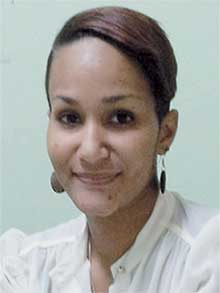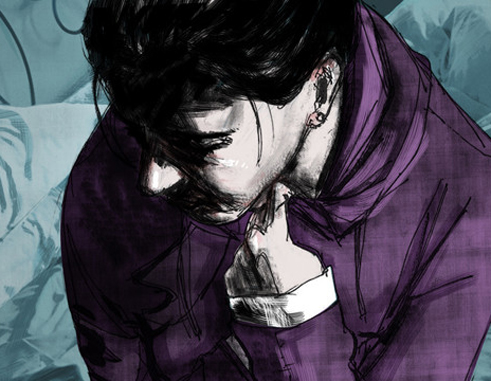
AS previously mentioned, we will be using the book, ‘The Courage To Heal: A Guide for Women Survivors of Child Sexual Abuse by Ellen Bass & Laura Davis as the foundation for many of our articles. The article that follows addresses the ways in which we cope whether heathy or unhealthy. What follows below may resonate with you in some unique way or bring back unwanted, unpleasant memories which may make it difficult to read the entire article. If you feel Triggered at any point put the article down, there is no need to force yourself. Always trust your feelings, there is no need to push yourself to read the entire article, or to read the entire article in one sitting. Take your time. Baby Steps.
The crime of sexual violence seems hard for many to empathize with partially because we find it difficult to wrap our minds around what a survivor/victim/thriver goes through both during and after an assault but also because so many lack the requisite knowledge to understand what actually happens when someone is sexually assaulted. For many, I believe there is an initial understanding that violation occurred and as a result the individual has been hurt, however, that quickly disappears when the rape myths following, what the individual did to cause their sexual assault and why they don’t deserve our support or empathy. We, the members of society place a clock on how long they are allowed to process what they went through, how long they are allowed to heal and the ways in which we decide are acceptable for them to cope. We, the members of society take away their decisions and seek to further control their outcome. But in truth, if we were to think of it from the standpoint that we are all survivors of something, that we have all lived through, survived something that has traumatized us, then maybe it would be easier to accept that trauma, pain, suffering, isn’t something we just get over. Maybe then we would understand that it also means that each of us is affected differently, heals differently, copes differently, experiences the aftermath in their own way. There is no one way to heal, to cope, to process trauma; that is unique to each of us.
As living breathing humans we have all experienced something that has left us feeling traumatized, something that has caused us to feel pain, terror, shame, anger, something that causes our bodies & minds to react when the memories resurface. Each of us has found our own unique way to deal with, to cope with those memories, with the pain, anger, terror, shame that accompanies the memories of the situation that has scared us. Our coping mechanisms generally fall into healthy or unhealthy categories, but ultimately, our coping mechanisms are what has kept us alive, kept us breathing, helped us get out of bed and face everyday that followed. I am not here to judge, or chastise anyone for the ways in which they choose to cope but instead to ask that you evaluate the ways in which you have been able to cope and decide which are healthy and which we need to work on to replace with healthier options. How we view coping will be different for each of us. For some coping is working to find a way to the other side of what you’re dealing with, for others it’s more about focusing on the process and less on the end result, and still for others it is about how we function and operate through the difficult times, how we are able to manage our energy levels while trying to deal with everything else. Truly, I think much of coping is trying to exist while we try to figure out how to find our way back to where we were before the trauma occurred. As survivors of one thing or another, we struggle with having to accept how we have been forever altered by the traumatic experience and whether we can ever get back to a “normal” existence again. For survivors of sexual violence, much of our time is spent trying to forget what happened, to pretend it didn’t happen.
I want to further explore ways in which survivors of sexual violence cope, but I am sure that regardless of what you are a survivor of, some of the ways of coping will resonate with you. Over the next few weeks we will go through quite a few coping mechanisms, but today we will focus on denial, rationalizing and minimizing. Denial is pretending that what has happened/ is happening didn’t, turning away from the reality of what is happening. Denial, can help give you the strength to get you through the what is happening. It may be too scary or difficult to acknowledge what is happening or has happened and the only way that you can continue to get out of bed is to deny what is happening. Minimizing helps because it allows us to act as if what is happening or has happened isn’t really that bad. We downplay the logistics of the situation to give us the will to continue. Minimizing allows us to make the situation more digestible, if it wasn’t really that bad then I’m not really that hurt, I can continue to get out of bed and make it through each day. Rationalizing allows us to explain what has happened or is happening. It allows us to formulate excuses for what has happened. This bad thing happened but the individual didn’t know they were doing it so….. The 3 types of coping mechanisms mentioned above are in many ways familiar to all of us in one way or another. Again, we are not here to judge but to educate and hopefully validate. Each of us copes in the best way we know how. Each of us is doing what we can to get through the day, to get out of bed. “Coping is what you did to survive the trauma of being sexually abused. And it is what you do now to make it through each day. Bass, Davis 2008)
Next week we will be looking at a few more. Should there be a specific topic you would like us to cover please feel free to email or text us. If there is a specific question you would like answered again please email or text us.
Survivors of sexual assault need a supportive environment to begin the healing process. They need to believe and feel that they are part of a culture that doesn’t support individuals who commit sexual crimes. We have to be the difference we want to see in our country. We have to be willing to start to make the change. We, at PROSAF, have acknowledged that violence against women is a problem in St.Lucia and the wider Caribbean. We are here to begin the metamorphosis that is desperately needed. We are always here to listen and if you are not ready to come forward but need a listening ear, feel free to contact us. Remember that Sexual assault is something that happens to people, it does not define them, it is something that was done to them. Survivors, Victims, Thrivers remember you are a strong, beautiful, intelligent woman/child/man who has suffered a trauma through no fault of your own. You are not guilty of any crime, something was done to you against your will. Sexual Assault is something that happened to you, it does not define you. You are worthy of love and happiness. Always remember that you are not alone, that you have nothing to be ashamed of. We are taking the baby steps necessary to make it better for all. KNOW YOU HAVE A SAFE SPACE IN PROSAF. If you are interested in finding out more information about sexual violence and what you can do as part of this community, please feel free to contact us at:
Yours Sincerely,
Souyenne Dathorne, Velika Lawrence
Email: ssaitco@hotmail.com – thepowerofone_v@hotmail.com
Facebook: SURVIVING SEXUAL ABUSE IN THE CARIBBEAN: https://www.facebook.com/pages/PROSAF-Surviving-Sexual-Abuse-in-the-Caribbean/165341356853908
Webpage: http://www.prosaf.org (under construction)
Telephone: 1-758-724-9991(sue) 1-758-723-6466(vel)





![Simón Bolívar - Liberator of the Americas [Photo credit: Venezuelan Embassy]](https://thevoiceslu.com/wp-content/uploads/2025/12/Simon-Bolivar-feat-2-380x250.jpg)



